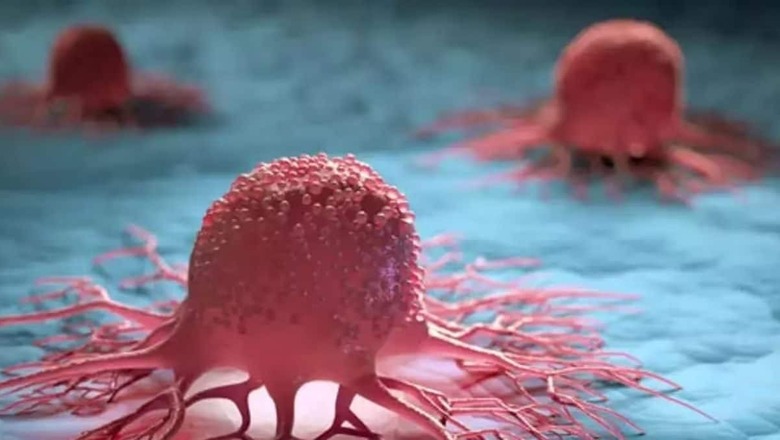
views
Ovarian cancer is a leading healthcare problem in women. Data reveals that ovarian cancer is the third most common cancer among Indian women. Thus highlighting its importance and need for understanding. It accounts for 3.33% (24015) of cancer related deaths. It is a ‘silent disease’, that is it spreads to a higher stage without very specific warning signs and usually detected in an advanced stage. Symptoms of this disease vary from person to person. This makes early detection a challenge, highlighting the importance of awareness about potential warning signs.
Understanding Ovarian Cancer
Ovarian cancer arises from the ovarian tissue. Ovaries are situated in the lower portion of the abdomen on either side and are responsible for secretion of hormones and production of the oocyte (egg) that is essential for reproduction. Although exact cause of ovarian cancer is still under evaluation some of the associated factors include – increasing age, family history, genetic alterations.
The 5 Key Symptoms to Watch Out For
- Persistent Abdominal Bloating and DiscomfortOvarian cancer is associated with features of abdominal discomfort and bloating. These are usually associated with decrease in appetite. There is a feeling of fullness after taking only a small quantity of of food.
- Changes in Bowel HabitsUnexplained change in bowel habits such as diarrhea and constipation can raise concerns and should be evaluated.
- Pelvic or Abdominal PainPersistent abdominal pain which is dull aching can be a warning sign and warrants evaluation
- Unexplained Weight Loss or GainUnintentional weight loss is at times associated with ovarian malignancy.
- Abnormal Vaginal BleedingIn some particular ovarian tumors unusual vaginal bleeding can be a presenting feature. This should be investigated by a doctor. Abnormal patterns could include bleeding between periods, heavier than usual periods, or spotting.
Remember: The presence of one or more of these symptoms doesn’t necessarily indicate ovarian cancer. However, it’s crucial to consult a doctor to determine the cause and rule out any serious health concerns if one encounters such symptoms.
Early Detection is Key
If you experience any of the persistent symptoms mentioned above, schedule an appointment with your doctor. Early detection of ovarian cancer significantly increases the chances of successful treatment. Your doctor will likely conduct a clinical evaluation, pelvic exam, and potentially order additional tests like ultrasounds, blood tests which may include a CA-125 blood test (as this test isn’t definitive for diagnosing ovarian cancer).
Taking Charge of Your Health
Here are some steps you can take to be proactive about your ovarian health:
- Regular CheckupsSchedule regular pelvic examinations with your doctor. While these exams cannot directly detect ovarian cancer, they can identify other potential issues and provide an opportunity to discuss any concerns you might have.
- Family History AwarenessIf you have a close relative (mother, sister, daughter) diagnosed with ovarian cancer, discuss your risk factors with your doctor. Genetic testing is recommended in these cases.
- Maintain a Healthy Lifestyle & WeightResearch suggests a potential link between obesity and metabolic syndrome with adverse outcomes of ovarian cancer. Maintaining a healthy weight through diet and exercise can be beneficial.
- Oral ContraceptivesUse of birth control pills for an extended period may offer some protection against ovarian cancer. Discuss this option with your doctor to determine if it’s suitable for you.Fortunately, advancements have been made in ovarian cancer treatment. The course of treatment typically depends on the stage and nature of the cancer. Surgery to remove the ovaries, fallopian tubes, and sometimes surrounding tissue is often the first line of defense. In some cases, additional surgery like the removal of disease deposits might be necessary. Fertility-sparing surgery is also an option in certain early-stage ovarian cancers. Chemotherapy is an additional method used for treating cancer. Depending on the specific situation, targeted therapies might also be used.
By being aware of the symptoms and taking proactive steps, you can identify potential concerns early and work with your doctor to ensure your well-being. Remember, early detection is critical for successful treatment.




















Comments
0 comment